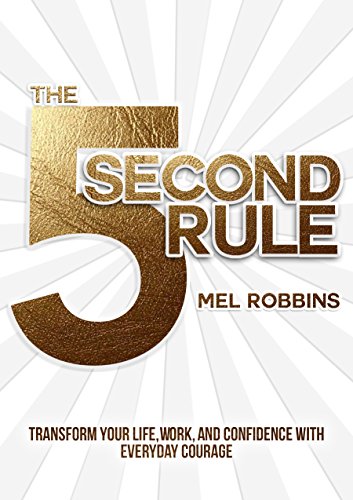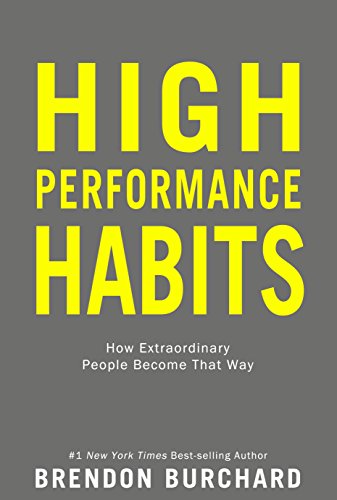Ten personal development books that can change your life
Reading is to the mind, what exercise is to the body. Anyone who is serious about personal growth should build a daily reading habit into their schedule. Reading offers access to an almost unlimited number of worlds and perspectives. The very best authors grant their readers a intimate insight into their thoughts, feelings, beliefs and behaviours. Often these insights are told through the experiences of fictional or historic characters but some authors choose to be truly vulnerable and offers themselves up for analysis and interpretation.
In search of personal growth, I sought out some of the bravest authors to learn from. Their stories and insights have deeply affected me and inspired me to build my future around personal growth and development. I want to share a list of ten personal development books that changed my life, in the hope that they may also offer you insights that could have a profound affect on your future. I’d also love to hear about the books that have had the biggest impact on your personal growth (novel, play, poem, IKEA instruction manual, whatever). Please share them with us in the comments section below.
PLEASE NOTE: If you choose to buy one of the books listed (by clicking on the links below) you will be helping Good Enough to Grow to invest in future content for this site. Good Enough to Grow will receive a small percentage of your purchase, from Amazon. So go ahead and buy, knowing that you're also doing your bit to support us.
'Daring Greatly' by Brene Brown
Daring Greatly was an important book for me because it introduced me to the idea that connection is the fundamental purpose of being human; connection with ourselves and with others. In this book, Brene explores the important role vulnerability plays in achieving connection. I learned, first hand, the experience of showing vulnerability as a means of building relationships. Coming out to my audit clients early in my career rapidly increased the levels of trust in our relationships. It wasn’t until I read Daring Greatly that I understood the reasons for this important outcome.
The 5 Second Rule by Mel Robbins
Sometimes the biggest steps forward can be achieved by the simplest of changes. The 5 Second Rule, by Mel Robbins, completely transformed my relationship with procrastination, anxiety and fear using a simple, but effective tool. The 5 Second Rule is based on well researched and documented ‘meta cognition’ principles and more importantly, delivered instant results for me. The biggest insight I gained from this short book was the damage that ‘hitting the snooze button’ was having on my productivity. If this book does nothing more than stop you hitting the snooze button, it will be worth the time and expense.
High Performance Habits by Brendon Burchard
Brendon Burchard is probably the most successful performance coach in the world right now. His book, High Performance Habits, is the result of a decade of data gathering and analysis of high performing people. If you’re someone who likes to know that a author's insights are backed up by robust data, then this is probably the one for you. Analysing hundreds of thousands of data sets, Brendon and his team at the High Performance Institute have identified six habits common in all high performing individuals. Brendon makes a compelling argument for building these habits into your daily life if you are really serious about becoming your best self.
You are a Bad Ass by Jen Sincero
OK, I’ll admit what first drew me to Jen Sincero was the title of this book. I just loved the idea of being a Bad Ass! and I was ready for a no bullshit read after some recent ‘weighty tomes’. Jen has a inspiring story which lends credibility to the opinions and insights she expresses, in her original style, throughout this book. Jen’s approach to being a Bad Ass lacks a cohesive structure, which some might find off putting, but each page offers at least two great ideas to spark the Bad Ass in you. This is one book where I would recommend the audio book version over the written page. The impact of Jen’s ideas is greatly enhanced by her own delivery; punchy, humorous, no bull shit - just Bad Ass!
Living Forward by Michael Hyatt & Daniel Harkavy
For the highly organised planner inside us all. Admittedly, in my case, he was very well hidden, deep down, until I read Living Forward by Michael Hyatt and Daniel Harkavy. Life changing personal growth can’t be achieved without a certain amount of planning and organisation. Those of us (and I include myself in this group) who hate planning and shy away from any opportunity to organise our lives better, need to suck it up and accept that our highest goals will not be achieved chaotically, spontaneously and at the last minute. Living Forward offers an accessible planning approach that will ensure that all your energy, decisions and actions are focussed on achieving your life goals.
The Chimp Paradox by Dr Steve Peters
I' sure you’ve already read this book. Next!
Get Some Headspace by Andy Puddicombe
I made a number of (failed) attempts to meditate before I finally cracked it with Andy Puddicombe’s Headspace app. I wanted to learn more about the ex circus performer / Buddhist monk turned mindfulness guru who had made meditation accessible for me. This book provides a brief history of Andy’s journey to becoming co-founder of Headspace along with more depth on the practice of mindfulness and its benefit for well being. For experienced mindfulness practictioners the book offers little in terms of technique that hasn’t already been mastered. The value of the book to the mindfulness beginner, however, is great. Mindfulness takes perseverance, particularly in the initial weeks of practice. Andy’s book anticipates all the frustrations that beginners may encounter when first attempting this ancient skill. His words of acknowledgement and encouragement helped me to stick with mindfulness until its beneficial qualities revealed themselves to me.
Man's Search for Meaning by Viktor E. Frankl
‘We had to teach the despairing men, that it did not really matter what we expected from life, but rather what life expected from us. We needed to stop asking about the meaning of life and instead think of ourselves as those who were being questioned by life.’ Viktor Frankl’s seminal work about his experiences as an Auschwitz concentration camp inmate during World War II offers a profound meditation on the role of suffering as part of the human experience. Who is more qualified to teach the reader about the value of enduring suffering, than a survivor of almost unimaginable horrors? Achieving life changing personal growth requires acceptance of personal suffering for a greater cause. Frankl’s words offer a metaphorical hand of support to the reader as they endure their own suffering with gratitude for what life has to offer, even in the darkest (and sometimes final) moments.
Reasons to Stay Alive by Matt Haig
Matt Haig is a successful novelist who has written a number of best selling books including, How to Stop Time and A Boy Called Christmas. Reasons to Stay Alive is the book that has already guaranteed his legacy as a writer, long after he puts down his pen / laptop for the last time. Matt has battled depression and anxiety for many years, despite leading a life that to those on the outside, appears to connect with his best self and sense of purpose. Our mental health can deteriorate and become ill just like our physical health; often for reasons that remain outside the awareness of the person affected or mental health professionals. Matt courageously reveals his vulnerability to a debilitating illness in the hope of offering others experiencing similar symptoms a sense of connection and belonging. I experienced suicidal thoughts briefly during my initial experience of depression many years ago and would’ve taken great comfort and encouragement from Matt’s book at the time. The world is a better place now this book exists.
The Brain: The Story of You by David Eagleman
Anyone embarking on a significant physical fitness goal will first take time to research subjects like nutrition, optimisation of training plan, effective ways to master the required fitness technique etc. And yet, when it comes to embarking on a plan of learning, development or growth we place little emphasis on the importance of understanding how our minds work and respond to different situations. During my final years at KPMG I became obssessed (almost) with understanding how an awareness of the way the mind works could influence (and in some circumstances directly impact) the likelihood of achieving significant performance improvements. I turned to The Brain: The Story of You by Brian Eagleman as an entry point into the complex and constantly expanding understanding of the brain. Eagleman explains in layman's terms what we currently know about how the brain works and each page offers jaw dropping facts that leave you astounded at the super computer you carry around with you each day in your head.










